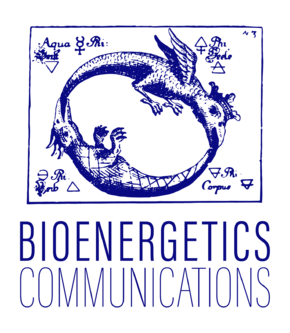| Donnelly C, Schmitt S, Cecatto C, Cardoso LHD, Komlódi T, Place N, Kayser B, Gnaiger E (2022) The ABC of hypoxia – what is the norm. Bioenerg Commun 2022.12.v2. https://doi.org/10.26124/bec:2022-0012.v2 |
» Bioenerg Commun 2022.12.v2. ![]()
published online 2022-12-22 v2; 2022-11-14 v1 ![]()
Donnelly Chris, Schmitt Sabine, Cecatto Cristiane, Cardoso Luiza HD, Komlodi Timea, Place Nicolas, Kayser Bengt, Gnaiger Erich (2022) Bioenerg Commun
Abstract: ![]() https://doi.org/10.26124/bec:2022-0012.v2
https://doi.org/10.26124/bec:2022-0012.v2
Hypoxia is a condition of oxygen levels below normoxia and opposite to hyperoxia. We here define the normoxic reference state by three complementary precepts: (A) ambient normoxia at sea level in the contemporary atmosphere and corresponding dissolved O2 concentrations at air saturation of aqueous environments; (B) biological compartmental O2 levels at ambient normoxia under physiological activity of healthy organisms in the absence of environmental stress (e.g. stress in a diving human, a stranded whale, a thermally stressed fish); and (C) O2 levels above the respiratory oxygen control region. In the oxygen control region, the capacity for O2 consumption is compromised by hypoxic partial O2 pressure as evaluated by O2 kinetics of respiration or other critical functions. The ABC of hypoxia distinguishes deviations from these reference points caused by different mechanisms: (∆A) ambient alterations of oxygen levels; (∆B) biological O2 demand exceeding O2 supply under pathological or experimental limitations of convective O2 transport or O2 diffusion; and (∆C) critical oxygen pressure in oxygen kinetics shifted by pathological and toxicological effects or environmental stress. The ABC of hypoxia may be of help in the design and interpretation of in vitro and in vivo experimental studies.
• Keywords: ambient, anoxia, critical O2 pressure pc, functional hypoxia, hyperoxia, hypoxia, limiting O2 pressure pl, normoxia, oxygen O2, O2 concentration cO2 [µM], O2 pressure pO2 [kPa]
• Bioblast editor: Tindle-Solomon L
• O2k-Network Lab: AT Innsbruck Oroboros, CH Lausanne Place N
ORCID: ![]() Donnelly Chris,
Donnelly Chris, ![]() Schmitt Sabine,
Schmitt Sabine, ![]() Cecatto Cristiane,
Cecatto Cristiane, ![]() Cardoso Luiza HD,
Cardoso Luiza HD, ![]() Komlodi Timea,
Komlodi Timea, ![]() Place Nicolas,
Place Nicolas, ![]() Kayser Bengt,
Kayser Bengt, ![]() Gnaiger Erich
Gnaiger Erich
From version v1 to v2
- The concept of updated versions of publications in BEC is promoted, to quickly add corrections and minor updates without return to peer review. Another round of peer review is mandatory for a new edition of Living Communications.
- Language does not have the rigorous structure of mathematics to avoid ambiguities. We have two interesting cases in our ABC abstract (v1):
- Case 1
- Reader Type L:
- Case 1
- (B) biological compartmental O2 levels at ambient normoxia under physiological activity of healthy organisms in the absence of environmental stress (e.g. in a diving human, a stranded whale, a thermally stressed animal); ..
- Reader Type T:
- (B) biological compartmental O2 levels at ambient normoxia under physiological activity of healthy organisms in the absence of environmental stress (e.g. in a diving human, a stranded whale, a thermally stressed animal); ..
- Case 2
- Reader Type L:
- Case 2
- (C) control of respiration i.e., O2 levels above the region, where the capacity for O2 consumption is not compromised by partial O2 pressure as evaluated by its kinetics.
- Reader Type T:
- (C) control of respiration i.e., O2 levels above the region, where the capacity for O2 consumption is not compromised by partial O2 pressure as evaluated by its kinetics.
- Reader Type L is correct in case 2 where Reader Type T gets it wrong, but Reader Type L fails to get it right in case 1 where Reader Type T gets the intended message. Science relies on 'correct' reading — considering context —, which should be helped by 'correct' writing. Find out in v2 if you are Reader Type L (reading the linked phrase) or Reader Type T (reading the final term), or if you are the 'correcting' reader in both cases. Here is the update with emphasized corrections (v2):
- (B) biological compartmental O2 levels at ambient normoxia under physiological activity of healthy organisms in the absence of environmental stress (e.g. stress in a diving human, a stranded whale, a thermally stressed fish);
- (C) O2 levels above the respiratory oxygen control region. In the oxygen control region, the capacity for O2 consumption is compromised by hypoxic partial O2 pressure as evaluated by O2 kinetics of respiration or other critical functions.
Abstract v1
- Hypoxia is a condition of oxygen levels below normoxia and opposite to hyperoxia. We here define the normoxic reference state by three complementary precepts: (A) ambient normoxia at sea level in the contemporary atmosphere and corresponding dissolved O2 concentration at air saturation of aqueous environments; (B) biological compartmental O2 levels at ambient normoxia under physiological activity of healthy organisms in the absence of environmental stress (e.g. in a diving human, a stranded whale, a thermally stressed animal); and (C) control of respiration i.e., O2 levels above the region, where the capacity for O2 consumption is not compromised by partial O2 pressure as evaluated by its kinetics. The concept of the ABC of hypoxia is extended by addressing deviations from these reference points caused by different mechanisms: ∆A: ambient alterations of oxygen levels; ∆B: biological O2 demand exceeding O2 supply under pathological or experimental limitations of convective O2 transport or O2 diffusion; and ∆C: critical oxygen pressure in oxygen kinetics shifted by pathological and toxicological effects or environmental stress. The ABC of hypoxia may be of help in the design and interpretation of in vitro and in vivo experimental studies.
On definitions
- Definitions always leak at the margins, where experts delight in posing counterexamples for their peers to ponder. Fortunately, the typical cases are clear enough that a little fuzziness around the edges does not interfere with the larger picture (Miller 1991 Scientific American Library).
- A lexicographer tries, not always successfully, to steer a course between incomprehension and miscomprehension. .. writing definitions is a difficult and little-appreciated art (Miller 1991 Scientific American Library).
- Full standardisation of definitions and analytical procedures could be feasible for new research efforts. .. For existing datasets and studies, harmonisation attempts to achieve some, but not necessarily perfect, homogeneity of definitions might need substantial effort and coordination. .. Large consortia and collaborations can allow the use of a common language among investigators for clinical definitions, laboratory measurements, and statistical analyses (Ioannidis 2014 Lancet).
Further reading
- Alva R, Gardner GL, Liang P, Stuart JA (2022) Supraphysiological oxygen levels in mammalian cell culture: current state and future perspectives. Cells 11:3123. https://doi.org/10.3390/cells11193123. PMID: 36231085
- Mori MP, Penjweini R, Ma J, Alspaugh G, Andreoni A, Kim YC, Wang PY, Knutson JR, Hwang PM (2023) Mitochondrial respiration reduces exposure of the nucleus to oxygen. https://doi.org/10.1016/j.jbc.2023.103018
- Stuart JA, Fonseca J, Moradi F, Cunningham C, Seliman B, Worsfold CR, Dolan S, Abando J, Maddalena LA (2018) How supraphysiological oxygen levels in standard cell culture affect oxygen-consuming reactions. Oxid Med Cell Longev 2018:8238459. https://doi.org/10.1155/2018/8238459. PMID: 30363917
- Wefers BM, Arbous M, Raat N, Mik E (2019) Mind the mitochondria! J Emergency Critical Care Med 3. https://jeccm.amegroups.org/article/view/5352
Preprint
Labels: MiParea: Respiration, Comparative MiP;environmental MiP, Exercise physiology;nutrition;life style
Stress:Oxidative stress;RONS, Hypoxia
Regulation: Aerobic glycolysis, Flux control, Temperature
Coupling state: ROUTINE
HRR: Oxygraph-2k
Ambiguity crisis, Tissue normoxia, BEC






